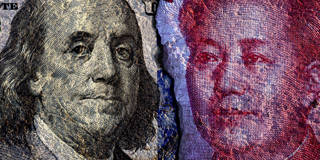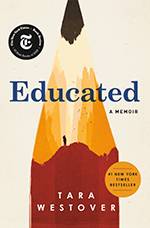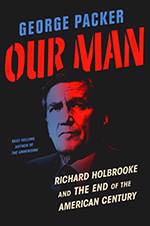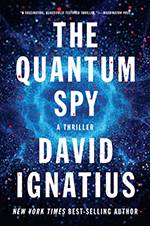OnPoint Subscriber Exclusive

Joseph S. Nye, Jr.
Says More…
This week Project Syndicate catches up with Joseph Nye, Professor at Harvard University, and author of Is the American Century Over? and the forthcoming Do Morals Matter? Presidents and Foreign Policy from FDR to Trump.
Project Syndicate: In a recent PS commentary, you claim that observers often underestimate the challenges China faces – including a soft-power deficit and an allergy to any reform that doesn’t strengthen the Communist Party – and you go on to suggest that the world’s second-largest economy may have “feet of clay.” Do you think that China’s recent decision to upend trade negotiations with the US by rewriting the draft agreement, ostensibly a show of strength, was actually driven by these underlying weaknesses?
Joseph Nye: I think China’s rejection of the proposed trade agreement in early May was a mistake, but one that was driven more by domestic politics and nationalism than by careful economic calculation. Both sides will lose from a trade war, with China possibly losing more. But I think that President Xi Jinping believed that US demands related to technology and subsidies to state-owned enterprises would allow too much American interference in China’s domestic development strategy, and thus could be used by critics to weaken his position. No trade deal is likely to “solve” the problem but rules of the road can help.
PS: You have emphasized America’s declining soft power in the age of Trump, yet you hold out the prospect of recovery after he leaves. Would a second Trump term extinguish all hope?
JN: On the one hand, a second term for Trump would certainly make it more difficult to recover American soft power; indeed, the erosion of trust in the US would likely accelerate. On the other hand, a lot of America’s soft power comes from our civil society, not our government. Much would depend on civil society’s resilience. It is worth remembering that American soft power recovered from its previous low point, during the Vietnam War, surviving the presidencies of Lyndon B. Johnson and Richard Nixon.
Nye, Jr. recommends
We ask all our Say More contributors to tell our readers about a few books that have impressed them recently. Here are Nye, Jr.'s picks:
-

Educated
by Tara Westover
Westover tells the story of growing up home-schooled in a survivalist family in Idaho where her fundamentalist Mormon parents reject modern science, medicine, and government. She eventually earns a graduate degree from Cambridge, but getting there is quite an ordeal. The book gave me insights into a culture which I otherwise could not comprehend.
-

Our Man: Richard Holbrooke and the End of the American Century
by George Packer
Not only is Packer's work a fascinating history of the past half century in American foreign policy, but his portrait of Holbrooke is subtle and well rounded. I worked with Holbrooke in both the Carter and Clinton administrations and Packer captures him well.
-

The Quantum Spy
by David Ignatius
Ignatius is prescient in describing the current US-China technological arms race in the guise of a spy thriller. He not only tells a good story, but understands the politics and how they interact with science.
-

Machines Like Me
by Ian McEwan
McEwan is not only a fine writer, but he is able to make difficult subjects come alive. He imagines a world in which Turing did not commit suicide, but went on to advance artificial intelligence to the point where we could own human-like machines. He then explores the political and moral implications of the Turing test with a great story.
From the PS Archive
From 2017
Two years ago, Nye expressed concern that China may not produce the global public goods that its rising power demands, repeating the disastrous mistake the US made during the 1930s. Read his full commentary The Kindleberger Trap.
From 2016
In the wake of a US presidential election shaped by Russian interference, Nye asked how countries can defend the integrity of their political processes from cyber warfare. Read his full commentary The Kremlin and the US Election.
Around the web
Thucydides famously attributed the Peloponnesian war to two causes: the rise of a new power, and the fear that creates in an established power. But, Nye points out, when discussing whether the US and China are headed toward the so-called Thucydides Trap, people tend to focus on China’s rise, without accounting adequately for the role of America’s fears. Read more here.
Global power dynamics are being transformed, with power not only shifting from West to East, but also being diffused among state and non-state actors. In his TED talk, Nye explores these dynamics – and offers some good news. Watch the video here.
The terms “liberal international order” and “Pax Americana” are no longer adequate descriptions of the global architecture. In today’s world, Nye asserts, it is the most connected states that are the most powerful. Read more here.